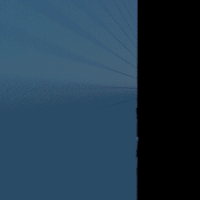 |
rfm2
22.0
A python-based rewrite of RenderMan for Maya
|
 |
rfm2
22.0
A python-based rewrite of RenderMan for Maya
|
 Inheritance diagram for rfm2.vp.geo.sphere.Sphere:
Inheritance diagram for rfm2.vp.geo.sphere.Sphere: Collaboration diagram for rfm2.vp.geo.sphere.Sphere:
Collaboration diagram for rfm2.vp.geo.sphere.Sphere:Public Member Functions | |
| def | __init__ (self, jsondict) |
| def | is_static (self) |
| def | vtx_buffer_count (self) |
| def | vtx_buffer (self) |
| def | idx_buffer (self, idx_buffer, num_vtx, start_idx, inst_idx) |
| def | has_uvs (self) |
| def | uv_buffer (self) |
 Public Member Functions inherited from rfm2.vp.geo.base.Vp2GeometryBase Public Member Functions inherited from rfm2.vp.geo.base.Vp2GeometryBase | |
| def | defaulted_value (self, name, default_val) |
| def | instance_draw_method (self, instance_idx) |
| def | instance_display_mode (self, instance_idx) |
| def | instance_vp2_primitive (self, instance_idx) |
| def | instance_enabled (self, instance_idx) |
| def | opacity (self) |
| def | get_input_params (self) |
| def | set_input_params (self, obj, **kwargs) |
| def | vtx_buffer (self, **kwargs) |
| def | color_buffer (self) |
Public Attributes | |
| rows | |
| cols | |
| radius | |
| uv_flips | |
| uv_offsets | |
 Public Attributes inherited from rfm2.vp.geo.base.Vp2GeometryBase Public Attributes inherited from rfm2.vp.geo.base.Vp2GeometryBase | |
| id | |
| textured | |
| num_instances | |
| inst_display_mode | |
| inst_draw_method | |
| inst_index_buffer | |
| inst_vp_shader | |
| method | |
| kwargs | |
| is_deforming_when_transformed | |
| def rfm2.vp.geo.sphere.Sphere.__init__ | ( | self, | |
| jsondict | |||
| ) |
Reimplemented from rfm2.vp.geo.base.Vp2GeometryBase.
| def rfm2.vp.geo.sphere.Sphere.has_uvs | ( | self | ) |
Return True if we can emit a uv vertex buffer.
Reimplemented from rfm2.vp.geo.base.Vp2GeometryBase.
| def rfm2.vp.geo.sphere.Sphere.idx_buffer | ( | self, | |
| idx_buffer, | |||
| num_vtx, | |||
| start_idx, | |||
| inst_idx | |||
| ) |
Fill the provided index buffer to draw the shape.
This is a 4x4 sphere
0 1 2 3- 4 0 1 2 3 4
|/ |/ |/ |/ | [0, 5, 1, 6, 2, 7, 3, 8, 4, 9, 9,
5 6 7 8- 9 5 6 7 8 9 5, 5, 10, 6, 11, 7, 12, 8, 13, 9, 14, 14
|/ |/ |/ |/ | 10, 10, 15, 11, 16, 12, 17, 13, 18, 14, 19, 19]
10 11 12 13-14 10 11 12 13 14
|/ |/ |/ |/ |
15 16 17 18-19 15 16 17 18 19
Reimplemented from rfm2.vp.geo.base.Vp2GeometryBase.
 Here is the call graph for this function:
Here is the call graph for this function:| def rfm2.vp.geo.sphere.Sphere.is_static | ( | self | ) |
Tells the vp code if the geometry is static or deforming, like a spot light frustum for example
Reimplemented from rfm2.vp.geo.base.Vp2GeometryBase.
| def rfm2.vp.geo.sphere.Sphere.uv_buffer | ( | self | ) |
Return a list of array coordinates for the shape. They should be ordered exactly like the vertex buffer points and have the same size as the vxt buffer. The default implementation returns a zero-filled list the same size as the vtx buffer to keep the uv buffer aligned with the vtx buffer.
Reimplemented from rfm2.vp.geo.base.Vp2GeometryBase.
| def rfm2.vp.geo.sphere.Sphere.vtx_buffer | ( | self | ) |
Return a list of vertices (list) in local space.
a 4x4 sphere looks like so:
0 1 2 3 - 0
4 5 6 7 - 4
8 9 10 11 - 8
12 13 14 15 - 12
i.e., we repeat the first an last vertex in each column so they may have
different uv coords. The first vertex has u=0.0 and the repeated first
vertex has u=1.0.
The top and bottom rows are the poles and all vertice have the same position.
| def rfm2.vp.geo.sphere.Sphere.vtx_buffer_count | ( | self | ) |
Return the number of vertices in this buffer.
Reimplemented from rfm2.vp.geo.base.Vp2GeometryBase.
 Here is the caller graph for this function:
Here is the caller graph for this function:| rfm2.vp.geo.sphere.Sphere.cols |
| rfm2.vp.geo.sphere.Sphere.radius |
| rfm2.vp.geo.sphere.Sphere.rows |
| rfm2.vp.geo.sphere.Sphere.uv_flips |
| rfm2.vp.geo.sphere.Sphere.uv_offsets |